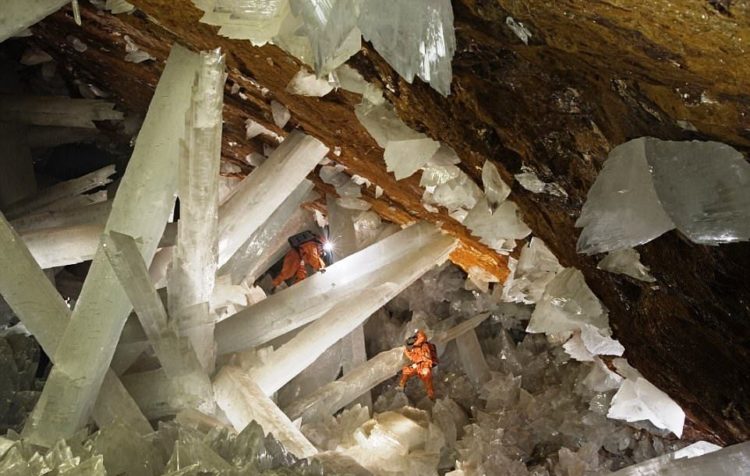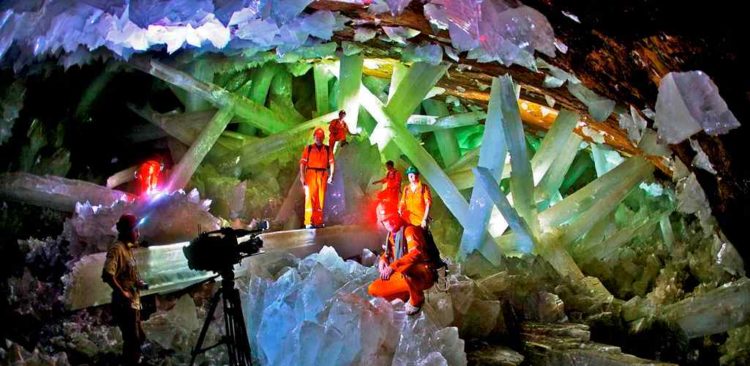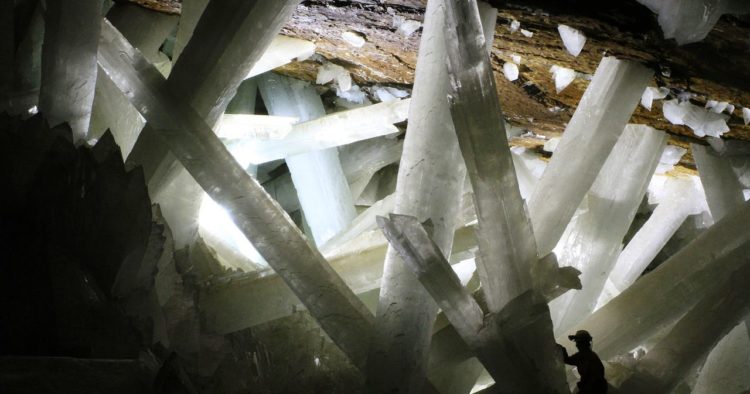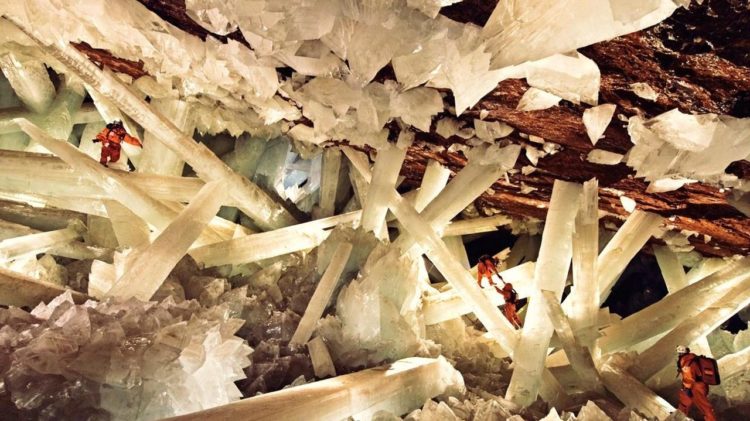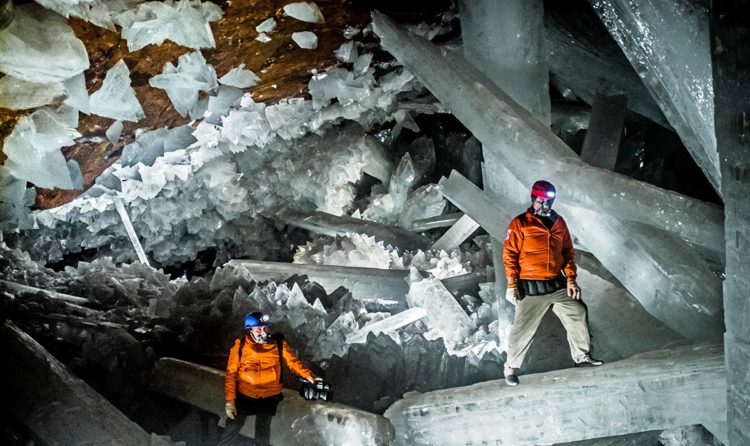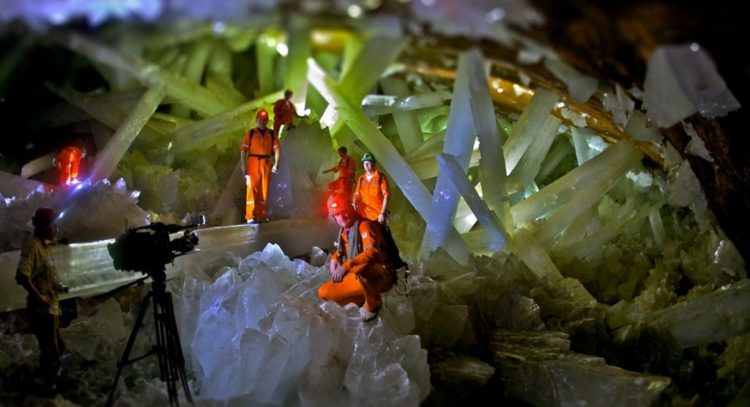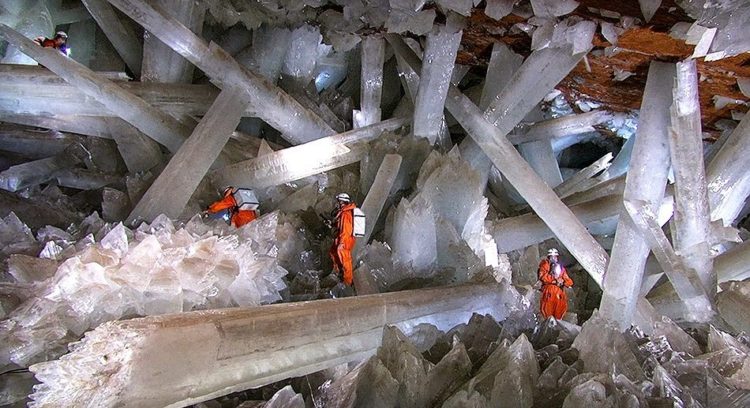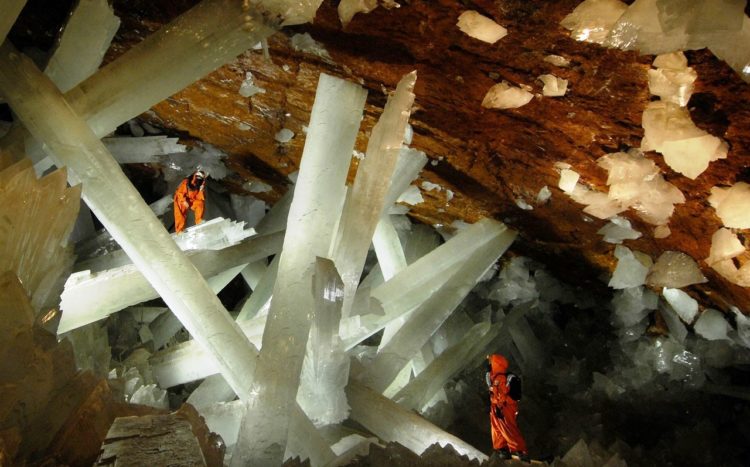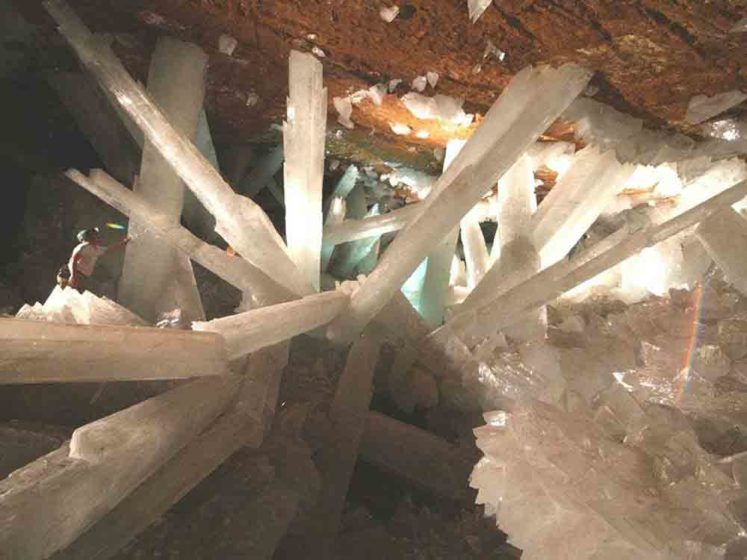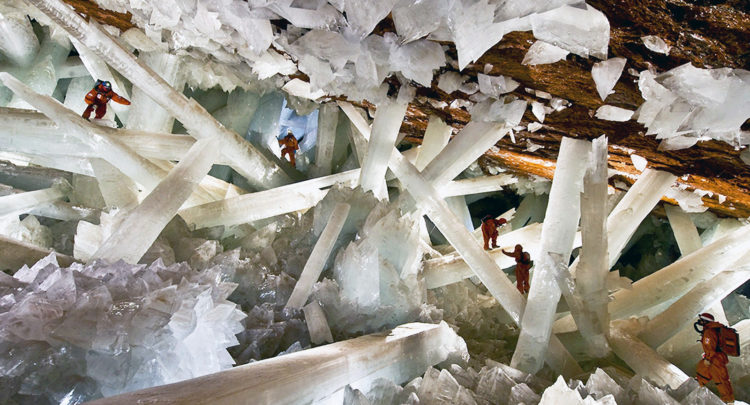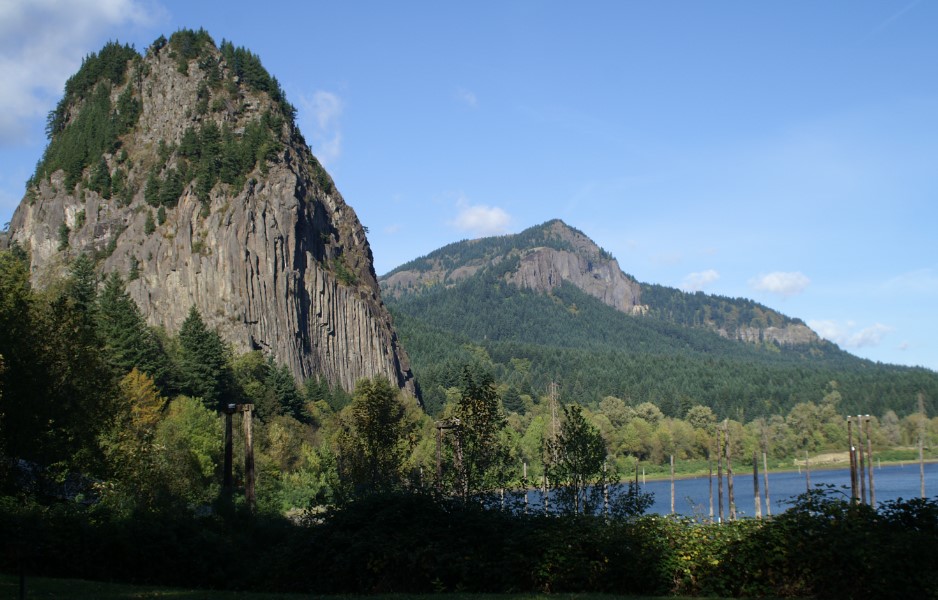The Giant Crystal Cave, or Cave of Crystals, is a famous selenite crystal cave in Chihuahua, Mexico.
The cave is known for its huge crystals, which were discovered in 2000 by miners working in the Naica mine. Since then, it has become a popular tourist destination.
This place is the most extraordinary in “Secret Marvels of the World.”. There is a compendium of the world’s weirdest and most wonderful sights that do have to be seen to be believed. You’d be forgiven for wondering if movie fiction had become fact while gazing upon the Cave of the Crystals in Mexico.
The Giant Cave of Crystals is an amazing cave connected to the Naica Mine at a depth of 300 meters in Naica, Chihuahua, Mexico. This remote part of northern Mexico is located an hour to the south of Chihuahua. This is famous for crystals, and paychecks at the local lead and silver mine, where almost everyone works, are meager enough to inspire a black market.
Brothers Eloy and Javier Delgado discovered the cave. These days’ scientists are working in the cave to conduct research on the crystals. Although the conditions are extremely difficult, their efforts seem to be paying off. Investigators have discovered a new type of gypsum formation, collected ancient pollen in the crystals, and extracted the DNA of extremophiles trapped in the crystals to match them to their closest living relative.
Unfortunately, the crystal caves at the Naica mines are open to scientific investigation only. Even in this case, each visitor needs the proper equipment, as the temperature and humidity can easily overheat the human body. The cave contains staggeringly huge crystals that are some four meters thick. Researchers believe some crystals are 500,000 years old.
The cave of crystal is extremely hot, with air temperatures reaching up to 58 °C with 90 to 99 % humidity. The main chamber contains some of the largest natural selenite crystals. The largest crystal found in this case is 12 m in length, 4 meters in diameter, and 55 tons in weight. The cave is relatively unexplored due to many reasons without proper protection; people can only endure about 10 minutes of exposure at a time.
The underground magma lies about 2 to 3 miles below the cave, heating the groundwater, which was saturated with sulfide ions. Thus, cool oxygenated surface water contacted the mineral-saturated heated water, but the two did not mix due to the difference in their densities.
Therefore, the oxygen gradually diffused into the heated water and oxidized the sulfides into sulfates. Moreover, the hydrated sulfate gypsum crystallized at a particularly slow rate over the course of at least 500,000 years, forming the giant crystals found nowadays.
In 1910, miners unearthed a cavern beneath the Naica mine workings. The Cave of Swords, located at a depth of 120 meters, above the Cave of Crystals, contains spectacular, smaller, 1 to 3 ft. long crystals. It is speculated that at this level, transition temperatures may have fallen much more rapidly, leading to an end to the growth of the crystals.
Giant Crystal contains substantial deposits of silver, zinc, and lead. The Cave of Crystals is a horseshoe-shaped cavity in limestone covered with perfectly faceted crystalline blocks. Huge crystal beams jut out from both the blocks and the floor.
The caves are accessible nowadays because the mining company’s pumping operations keep them clear of the water. If the pumping were stopped, the caves would again be submerged in water. The crystals deteriorate in the air, so the Naica Project is attempting to visually document the crystals before they deteriorate further.
The cave featured lends credence to the existence of farther chambers, but further exploration would have required significant removal of the crystals. As the cave’s accessibility is dependent on the mine’s water pumps, when mineral exploitation ends in the area, it is expected that the pumps will be shut off and the cavern’s water level will rise again.
Also Read: The Fly Geyser of Nevada, USA
Source: Wikipedia / Crystal Inks

